General
African Universities urged on developing comprehensive safeguarding policies with critical elements of safety & protection
Published
2 years agoon
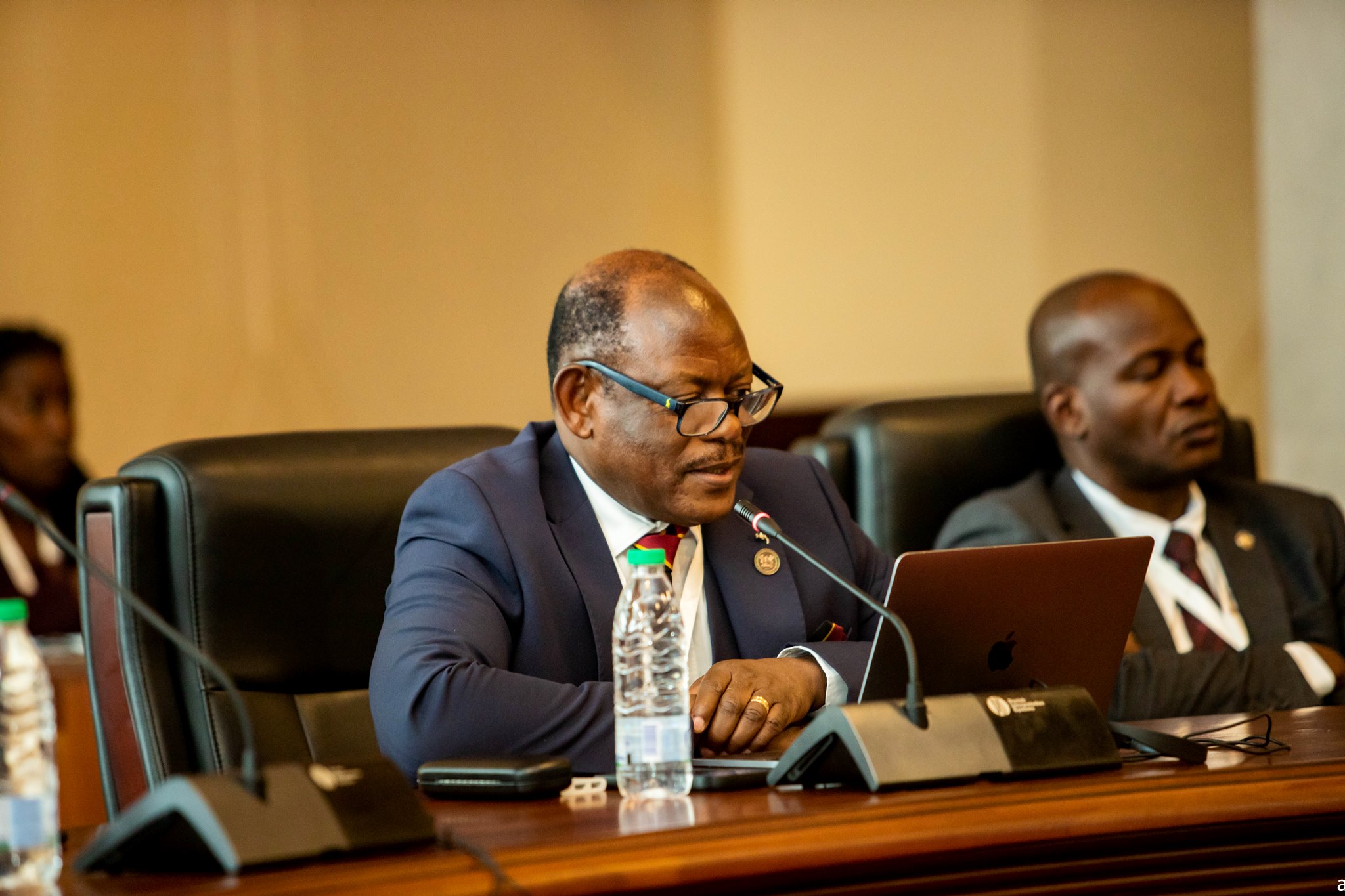
The Vice Chancellor of Makerere University, Prof. Barnabas Nawangwe has urged Universities and other institutions of higher learning in Africa to embrace the approach of having comprehensive safeguarding policies where important elements of safety and protection are considered and all the common forms of risk, abuse and harm are emphasized.
This was during the Vice Chancellors’ Forum, one of the high powered side events of the RUFORUM Annual General Meeting that provides significant platforms for Vice Chancellors of all RUFORUM member Universities to engage, discuss, deliberate and guide on how universities, government and development partners can support the RUFORUM vision and mission of becoming a leader in higher agricultural education.
The Vice Chancellors’ Forum 2023 that was held in Yaoundé Cameroon during the 19th RUFORUM Annual General Meeting that proceeded from 28th October- 2nd November 2023 was the most attended ever with over 150 Vice Chancellors from 40 African countries and other parts of the world. The Forum deliberated on emerging and contemporary issues in higher education to strengthen university systems, promote inclusion and enhance the relevance of universities in national and regional development.
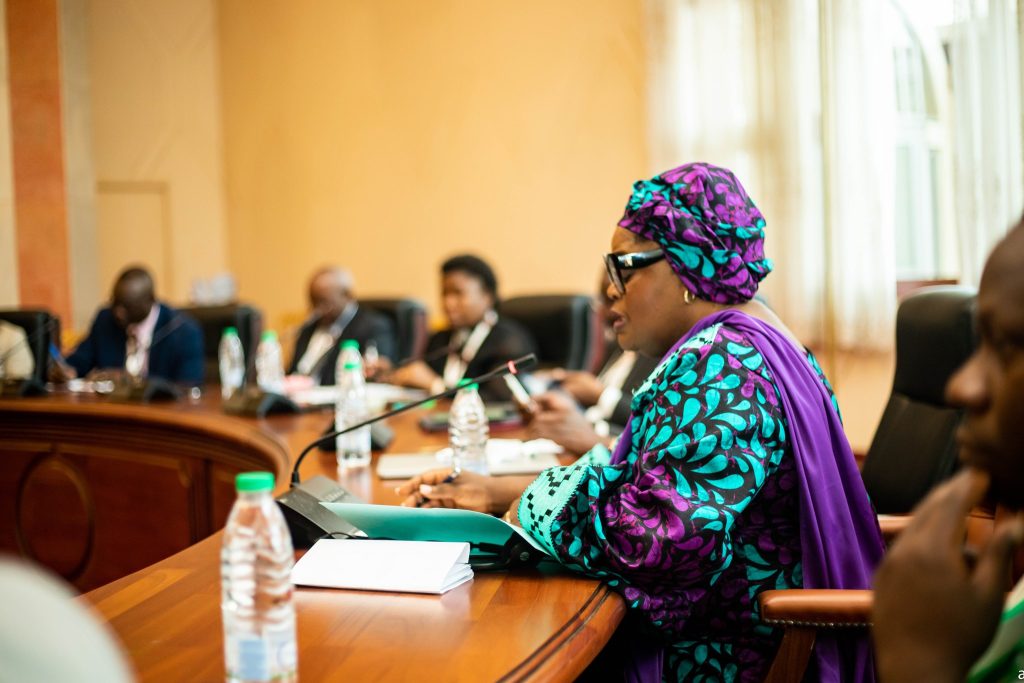
In her welcome speech, Prof. Theresia Nkuo-Akenji, RUFORUM Board Chair and Vice Chancellor University of Bamenda, Cameroon welcomed all Vice chancellors in attendance and acknowledged their strong commitment to the RUFORUM as a Network. She also appreciated the efforts of the Vice Chancellors in setting the agenda for the network to ensure its competitiveness.
According to her, RUFORUM has come of age but growth across every life’s journey comes along with its own challenges and opportunities. She therefore thanked all the Vice Chancellors that have committed and continue to clear the membership fees in time on annual basis. “Your contribution of US$5,000 is what keeps the Secretariat operational,” she said.
Prof. Theresia Nkuo-Akenji drew the attention of the Vice Chancellors to some critical issues such as low institutional burn-out rates of grant funding, the terrible completion rate of graduate students across the network, curriculum reviews that do not incorporate innovative academic programmes and policies that do not respond to global discourses. Noting that such issues have posed serious barriers achieving the network’s objectives.
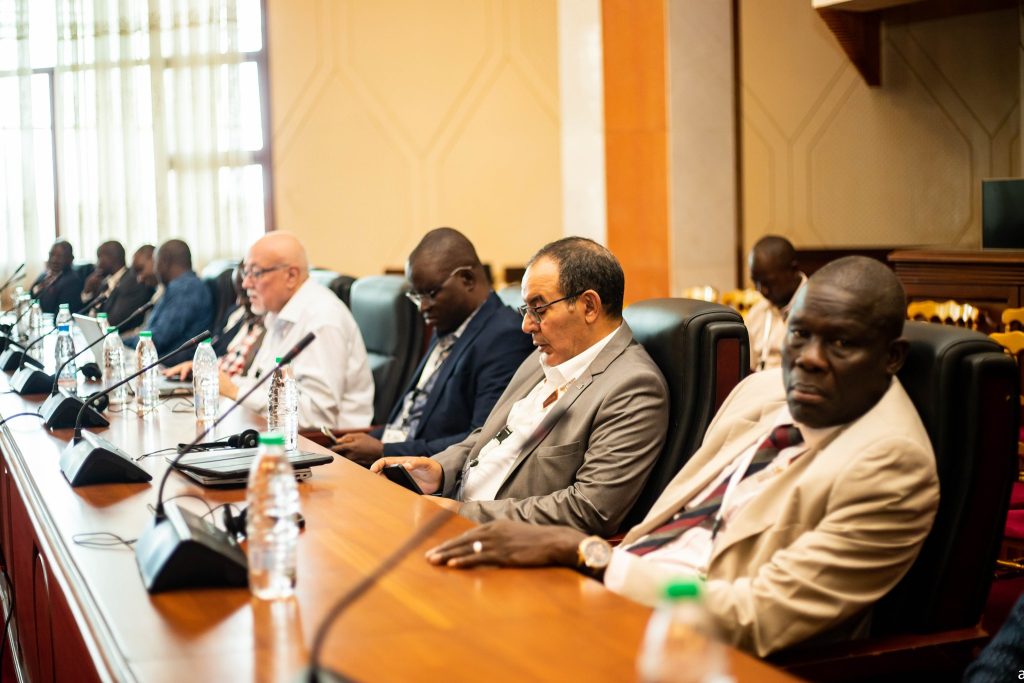
She urged all universities to collectively support the RUFORUM Secretariat during resource mobilization. “It is important to note that RUFORUM Secretariat is not a donor as many of the members might perceive it. Rather, RUFORUM Secretariat works with all of us to raise resources that can either be sub-granted and/or directly disbursed by the funding agency to each of the universities that is participating. The Secretariat can support the universities efforts in training and ideation processes as well as brokering partnerships with ease. However, we need to ensure that we are all cooperative,” She stated. Presenting a lead paper titled, Enhancing Safeguarding at institutions of higher Learning, Prof. Nawangwe noted that Makerere University is committed to being a professionally governed, equitable, inclusive and gender mainstreamed institution. In line with this commitment, Makerere University has cited the need to have a comprehensive safe guarding policy that is intentional in ensuring that important elements of safety and protection are considered and all the common forms of risk, abuse and harm are emphasized.
According to Prof. Nawangwe, over the years Makerere University has built a record of governing and administrative policies and frameworks such as the Makerere University Policy and Regulations against Sexual Harassment, Makerere University Gender Equity Policy, the Student Accommodation Policy, the Risk Management Plan, the Policy on Persons with Disabilities, the Human Resources Manual as amended, Information and Communication Technology Policy which addresses issues of cyber security and abuse and the Open Distance and E-learning Policy. However, these do not adequately and comprehensively address the key elements of safety and protection.
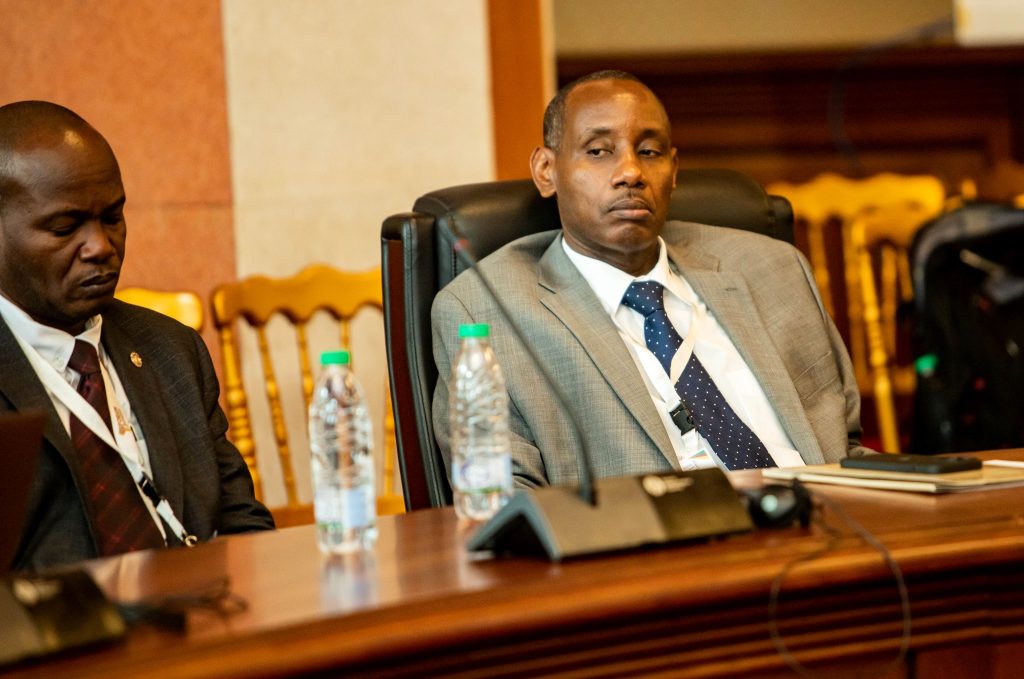
“These policies only feature identification and prevention as elements of safeguarding hence guidance on the report procedures are least provided for. They much highlight emotional risk and harm and neglect cyber security threats, financial exploitation, limitation of academic freedoms for staff and students,” he said.
“All in all, the policies lack some of the internationally considered forms of risk, abuse and harm. In Africa, we are the second recipients of refugees in the whole world, but we lack anything about protecting refugees in our policies and some of the policies do not have the strategic plans to address any form of risk, abuse and harm,” he added.
He mentioned that the COVID 19 pandemic escalated the issue of mental health with so many cases of mental illnesses globally, an indicator that it is only in a safe and protected environment that people are mentally healthy to be fully creative and innovative.
The Vice Chancellors Forum 2023 also deliberated on topics such as exploring mechanisms for integrating universities into national and regional innovation systems and aligning African agricultural higher education to the future-of-work on the continent and globally.
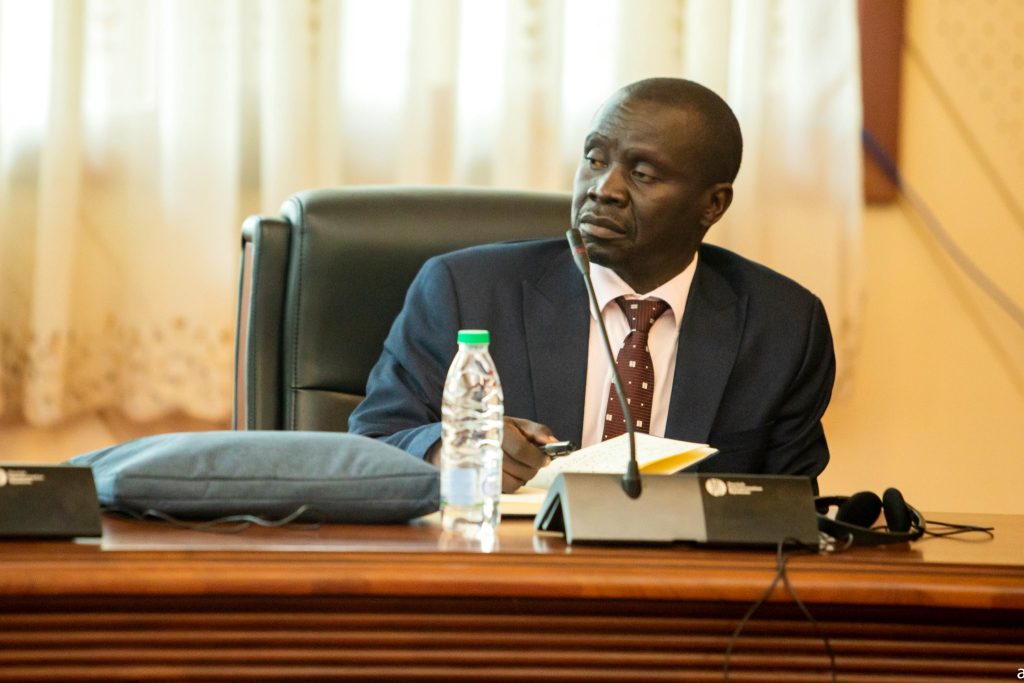
Presenting on behalf of Prof. Bonang Mohale, Chancellor, University of Free State, South Africa, Agnes W. Mwang’ombe, a Professor Emeritus of Plant Pathology- Department of Plant Science and Crop Protection- University of Free State said that university education has become very competitive yet it is crucial for universities to remain ahead and relevant to their clients and other stakeholders through inclusive virtual modes that have set in new dimensions such as in-house pool of talent that in most cases await to be tapped. She mentioned that it is high time for Universities to shun away from the rampant blame games of how African graduates are not ready to tackle community challenges and focus on revamping, modifying and creating new systems of conducting research.
“As universities, we are expected to produce relevant information, knowledge, technologies, and innovations to fulfill aspirations; develop mechanisms to tap on human resource and mobilize research funds for the university. There is need for actual retooling of academic staff to be able to harness the various competences and skills represented in the universities including students through building alliances and effective teams to grant calls with wider society impact,” she said.
In the context of food and nutrition insecurity, Prof. Mwang’ombe noted that the changing climate has dwindled natural resources and increased social and economic inequalities hence raising concerns for more health food systems and eco-system services. She therefore called for collective efforts towards building resilience for sustainable agriculture and economic empowerment of those most affected by climate change through bio diversity restoration using natural based solutions.
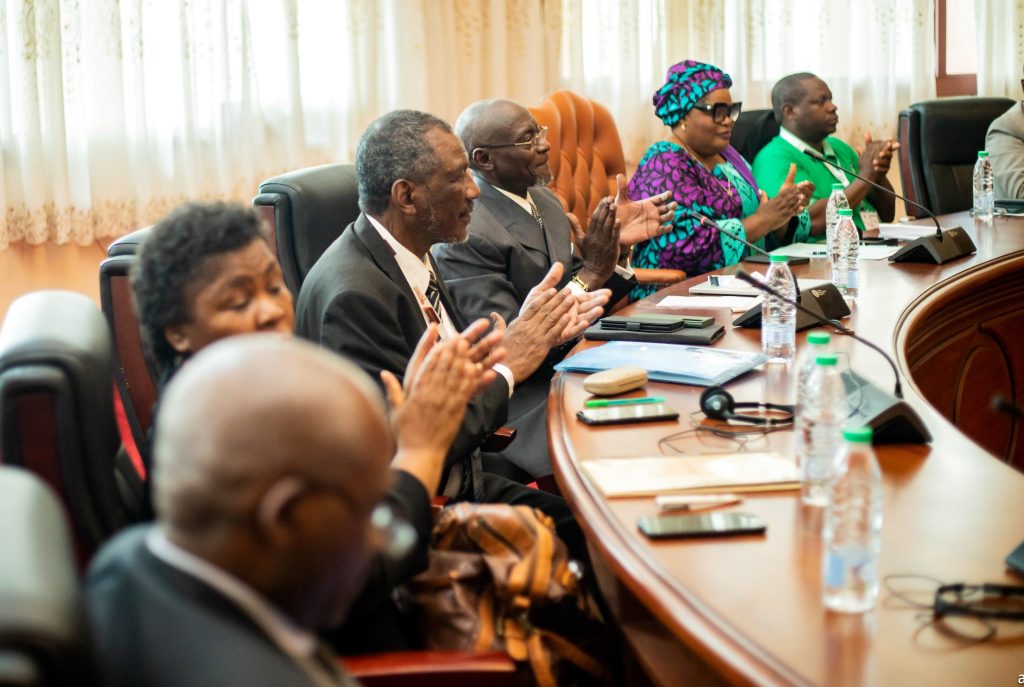
“Food and nutrition is constrained by many factors including the heavy reliance on very few staple crops yet Africa has the diversity of crops some of which can handle some of the current situations,” she noted.
Painting a picture of the Future of Work for a competitive Africa, Prof. Peter Kamwi Matengu, Vice Chancellor, University of Namibia, was concerned about the role of higher education in developing interventions as a mitigating factor towards decreasing jobs in the agricultural sector. According to him, a report published in 2023 by the World Economic Forum recorded 673 million jobs across the globe. It is however expected that this number will decline by 83 million hence creating a job deficit of about 2%.
“It is not surprising that the field of agriculture which has increasingly been mechanized and automated will lose up to 60% of the jobs. The World Economic Forum report also notes that although the automation in Agriculture will create up to 25% of jobs, it is also expected that 75% of job will be lost in Africa if there is no intervention of up scaling and re scaling. This also means that 44% of the workers whose skills need to be upgraded will face a disruption,” he said.
Prof. Kamwi Matengu called upon universities in Africa to undertake relevant, impactful, responsive research that majorly focus on participation. “ The kind of research, I am talking about should enable us translate our knowledge into practice and African education should focus on national self- reliance and train people to be internationally competitive and to be very aware that we have the responsibility of the welfare of everyone,” he emphasized. The Vice Chancellors’ Forum 2023 was moderated by Prof. Roger Tsafack Nanfosso, Vice Chancellor, University of Dschang and Canon Prof. Olivia Nassaka Banja, Vice Chancellor of Ndejje University.
You may like
-


Over 9,200 to graduate at Makerere University’s 76th Graduation
-


Mak hosts First African Symposium on Natural Capital Accounting and Climate-Sensitive Macroeconomic Modelling
-
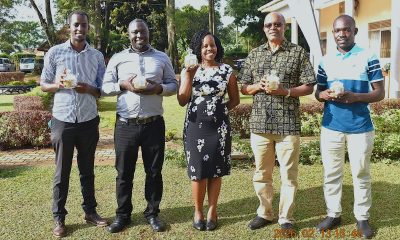

Makerere University Researchers Release New Soybean Variety, MakSoy 7N
-


Olivia Nakisita and the Quiet Urgency of Adolescent Refugee Health
-
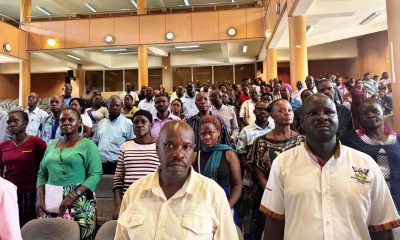

Support Staff Trained to Promote Safety of Students and Stakeholders
-
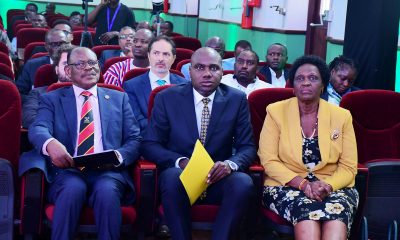

First African Symposium underscores the role of the Centre of Excellence for Africa Climate-Sensitive Macroeconomic Modelling
General
Over 9,200 to graduate at Makerere University’s 76th Graduation
Published
4 hours agoon
February 24, 2026
Pomp and colour defined the opening day of the Makerere University’s 76th Graduation Ceremony as thousands gathered to celebrate academic excellence and new beginnings.
The historic ceremony has brought together scholars, families, friends and industry partners in a vibrant celebration of achievement and possibility. Throughout the four-day event, the University will confer degrees and award diplomas to 9,295 graduands in recognition of their dedication and hard work.
Among the graduates, 213 will receive Doctor of Philosophy (PhD) degrees, 2,503 will graduate with Master’s degrees, and 6,343 will earn Bachelor’s degrees. In addition, 206 students will graduate with postgraduate diplomas, while 30 will be awarded undergraduate diplomas.
Of the total number of graduands, 4,262 are female and 5,033 are male. According to Vice Chancellor, this marks the first time in 15 years that male graduands have outnumbered their female counterparts.
The best overall graduand in the Sciences, Esther Ziribaggwa, graduated on the opening day with the Bachelor of Agricultural and Rural Innovation and an impressive Cumulative Grade Point Average (CGPA) of 4.77.

The ceremony marks a proud moment for Makerere University as it continues to nurture top-tier professionals across diverse fields.
While presiding over the graduation, the State Minister for Primary Education, Hon. Dr. Joyce Moriku Kaducu, on behalf of the First Lady and Minister of Education and Sports, Hon. Janet Kataaha Museveni, pointed out that Makerere University is a model institution, where leaders are nurtured, scholars are sharpened, and where dreams have been given direction.
In her address, Hon. Museveni, highlighted Government’s deliberate investment in research, innovation, and infrastructure to strengthen higher education in Uganda.
“The establishment of the Makerere University Research and Innovation Fund (RIF), supports high-impact research and innovation that directly contributes to national priorities and development. Through this initiative, thousands of researchers and innovators have pursued practical, scalable solutions that are transforming communities and key sectors across Uganda,” Mrs Museveni, said.
The Minister also noted that Parliament’s approved a USD 162 million concessional loan to upgrade science, technology, and innovation infrastructure at Makerere University. The funding will facilitate the construction of modern laboratories, smart classrooms, and state-of-the-art facilities for Engineering and Health Sciences, investments expected to position the University firmly within the Fourth Industrial Revolution.
“Government has embarked on the construction of a National Stadium at Makerere University and other institutions of higher learning across the country. This will promote physical education, strengthen talent identification, and boost investment in the sports sector,”

Turning to the graduands, the Minister encouraged them to see themselves not merely as job seekers, but as job creators and solution-makers.
Uganda and Africa need innovators who will modernize agriculture; engineers who will build quality infrastructure; healthcare professionals who will strengthen health systems; and educators who will inspire the next generation,” the Honourable Minister said.
She reminded graduates that they are entering a rapidly changing world shaped by Artificial Intelligence, climate change, and shifting global markets. To thrive, she advised them to remain adaptable, creative, and committed to lifelong learning.
She also encouraged graduates interested in entrepreneurship to tap into the Government’s Parish Development Model, which provides community-based financing and production support.
Quoting Proverbs 3:5–6, the Minister urged the graduates to trust in God as they embark on their next chapter.
She extended special appreciation to the Mastercard Foundation for its 13-year partnership with Makerere University in expanding access to education and empowering young people in Uganda and beyond.
In his speech, the Chancellor of Makerere University, Dr Crispus Kiyonga, urged graduands to harness research, innovation and technology to drive Uganda’s transformation.

“This is a milestone in your lives. You have invested time, discipline and hard work to attain these qualifications. It is important that you derive value from this achievement, not only for yourselves, but for your families and for society.” Dr Kiyonga, said.
Dr. Kiyonga expressed gratitude to the Government of Uganda for its continued financial support to the University, particularly the funding allocated under MakRIF, which he described as critical in strengthening the institution’s research capacity.
“Research plays a very vital role in the development of any community. Makerere as the oldest University in the country is doing a significant amount of research, However, more work is required to mobilize additional resources to further strengthen research at the University.” Dr Kiyonga, noted.
Acknowledging the challenges of a competitive job market, Dr. Kiyonga encouraged graduates to think beyond traditional employment pathways.
“It is true that the job market may not absorb all of you immediately. But the knowledge you have acquired is empowering. You can create work for yourselves, individually or in teams.” Dr Kiyonga, said.
He advised the graduands to embrace discipline, integrity and adaptability in the workplace, and to take advantage of technology and digital platforms to innovate and respond to societal challenges.
“Every development challenge presents an opportunity. Believe that you can apply your knowledge to create solutions with impact.” He said.
Addressing the congregation, the Vice Chancellor, Prof Barnabas Nawangwe, congratulated the graduands, particularly staff and societal leaders on their respective achievements.

“I congratulate all our graduands upon reaching this milestone. In a special way I congratulate the members of staff, Ministers, and Members of Parliament that are graduating today as well as children and spouses of members of staff,” Prof Nawangwe, said.
In his speech, Prof Nawangwe, recognized outstanding PhD students, particularly members of staff. who completed their PhDs in record time without even taking leave from their duties.
He called upon graduates not to despise humble beginnings but rather reflect on the immense opportunities around them and rise to the occasion as entrepreneurs.
“You are all graduating with disciplines that are needed by society. We have equipped you with the knowledge and skills that will make you employable or create your own businesses and employ others. Do not despair if you cannot find employment. Instead, reflect on the immense opportunities around you and rise to the occasion as an entrepreneur,” Prof Nawangwe, said.
Prof Nawangwe called upon the graduands of PhDs to use their degrees to transform the African continent.
“As you leave the gates of Makerere I urge you to put to good use the knowledge you have received from one of the best universities in the World to improve yourselves, your families, your communities, your Country and humanity. Let people see you and know that you are a Makerere alumnus because of the way you carry yourself in society with dignity and integrity. Put your trust in God and honour your parents and opportunities will be opened for you,” Prof Nawangwe, said.
Delivering a key note address, Prof. Nicholas Ozor, the Executive Director of the African Technology Policy Studies Network Nairobi, Kenya ((ATPS). Reminded the graduates that a degree is not a finish line but the beginning of accountability. “The world is a complex, fast changing and deeply unequal. Degrees make you responsible for others not better than them,” Prof Ozor, said.

The 76th Graduation Ceremony of Makerere University will be held from Tuesday 24th to Friday 27th February, 2026. A total of 213 PhDs (87 female, 126 male), 2,503 Masters (1,087 female, 1,416 male), 206 Postgraduate Diplomas (80 female, 126 male), 6,343 Undergraduate Degrees (2,999 female, 3,344 male), and 30 Undergraduate Diplomas (9 female, 21 male) will be graduating from all the Colleges.
Ms. Sarah Aloyo and Ms. Nakato Dorothy both students of the Bachelor of Procurement and Supply Chain Management emerged as the best in the Humanities and Best Overall students with a CGPA of 4.93. Mr. Ssewalu Abdul, a Bachelor of Leisure and Hospitality Management student emerged second best in the Humanities with a CGPA 4.90. Ms. Esther Ziribaggwa emerged as the best student in the Sciences with a CGPA of 4.77 in the Bachelor of Agricultural and Rural Innovation, while Mr. Simon Mungudit emerged second best in the Sciences with a CGPA of 4.76 in the Bachelor of Science in Petroleum Geoscience and Production.
Commencement Speakers
- Day 1 – Prof. Nicholas Ozor, the Executive Director of the African Technology Policy Studies Network, Nairobi, Kenya
- Day 2 – Prof. Dr. Maggie Kigozi, Chairperson Makerere University Endowment Fund Board
- Day 3 – Dr. Patricia Adongo Ojangole, Managing Director, Uganda Development Bank Limited
- Day 4 – Ms. Reeta Roy, Former President & Chief Executive Officer, Mastercard Foundation
The 76th Graduation Ceremony will be held at the Freedom Square following the schedule below:
Tuesday, 24th February, 2026
College of Agricultural and Environmental Sciences (CAES)
College of Computing and Information Sciences (CoCIS)
College of Education and External Studies (CEES)
School of Law (SoL)
Livestream Link for Day 1: https://youtube.com/live/wVGPA0FJ9pU
Wednesday, 25th February, 2026
College of Health Sciences (CHS)
College of Natural Sciences (CoNAS)
College of Veterinary Medicine, Animal Resources and Bio-security (CoVAB)
School of Public Health (SPH)
Thursday, 26th February, 2026
Makerere University Business School (MUBS)
College of Business and Management Sciences (CoBAMS)
Friday, 27th February, 2026
College of Engineering, Design, Art and Technology (CEDAT)
College of Humanities and Social Sciences (CHUSS)
Institute of Gender and Development Studies (IGDS)
Makerere Institute of Social Research (MISR)
General
Mak Selected to Host Alliance for African Partnership Africa Office
Published
1 day agoon
February 23, 2026
Makerere University has been selected to host the Africa Office of the Alliance for African Partnership (AAP). The significant milestone that underscores Makerere’s role in fostering research, innovation, and global collaborations across the continent was announced at a meeting of the University’s Central Management with an AAP delegation on 23rd February 2026.
Makerere’s selection was based on the University’s robust commitment, alignment with the AAP’s Strategic Plan, and proven ability to manage consortium activities. The AAP, which was initiated by Michigan State University (MSU) in collaboration with Ten African Universities and agricultural policy research networks in 2016, targets critical challenges in education, youth empowerment, health and nutrition, agri-food systems, science and technology, water, energy, environment, and culture and society.
Addressing the delegation consisting of AAP Co-Directors from MSU, Dr. Jose Jackson-Malete and Dr. Amy Jamison, accompanied by newly-appointed Director of the AAP Africa Office, Dr. Racheal Ddungu Mugabi and Ms. Clare Cheromoi, the Vice Chancellor, Prof. Barnabas Nawangwe who appreciated the choice of Makerere to host the Africa Office said:
“One of the greatest challenges facing African universities is PhD training, particularly supervisory capacity. Through partnerships such as the Alliance for African Partnership we can leverage international expertise to strengthen supervision—whether through training supervisors or through joint supervision arrangements.”
Prof. Nawangwe equally applauded joint initiatives such as the Grant Writing and Publication project, which gave rise to the establishment of a Writing Centre that he said can be used to build capacity in AAP member universities with Makerere as the hub. Officially launched on 21st March 2023, the project is living up to its expectation of becoming a springboard for strong postdoctoral collaborative research for both institutions and other US universities.
Dr. Titus Awokuse, Vice Provost and Dean for International Studies and Programs at Michigan State University (MSU) who attended virtually, reiterated that Makerere’s selection reflects its long-standing commitment to advancing African higher education, research excellence, and meaningful global collaboration.
Reflecting on the origins of the Alliance for African Partnerships (AAP), Dr. Awokuse explained that nearly a decade ago, MSU initiated a transformative conversation in Atlanta centered on the question: How should we partner differently? From this dialogue emerged AAP—an Africa-centered consortium that now brings together 12 institutions across Africa and the United States.

He emphasized that AAP is grounded in equity, mutual benefit, shared leadership, and deep respect for African priorities and expertise. Since its founding, MSU has served as convener and key supporter, working with member institutions to strengthen research collaboration, promote faculty and student engagement, and address shared development priorities.
Dr. Awokuse underscored that AAP’s success is the result of collective vision and commitment, not the efforts of a single institution. He paid tribute to Lilongwe University of Agriculture and Natural Resources for hosting the Africa Office in its early years and acknowledged the foundational leadership of the inaugural Africa Office Director.
He described the launch of the Africa Office at Makerere University as a significant milestone that reinforces Africa-led leadership, strengthens regional collaboration, and enhances responsiveness to emerging opportunities. MSU, he affirmed, remains fully committed to AAP and to working closely with Makerere and all consortium partners to expand collaborative research, nurture the next generation of scholars, and advance Africa-led solutions to global challenges.
The newly-appointed AAP Africa Office Director, Dr. Racheal Ddungu Mugabi is a member of faculty in the Department of Development Studies, Institute of Gender and Development Studies. Her work on intersectional inequalities in Uganda and other Global South regions uniquely positions her to drive collaborative research and partnerships at the Africa Office.
Initially founded by ten African Universities and MSU, AAP now comprises eleven African members including; the African Network of Agricultural Policy Institutes (ANAPRI)-Zambia, Egerton University-Kenya, Lilongwe University of Agriculture and Natural Resources (LUANAR)-Malawi, Makerere University-Uganda, United States International University-Africa-Kenya, Universite Cheikh Anta Diop-Senegal, Universite Yambo Ouologuem de Bamako-Mali, University of Botswana-Botswana, University of Dar es Salaam-Tanzania, University of Nigeria, Nsukka-Nigeria, and the latest, University of Pretoria-South Africa.
These Universites collaborate under Focal Points to advance policy-relevant research and sustainable development. Makerere University’s Focal Point is Prof. Robert Wamala, Director of Research, Innovations and Partnerships (DRIP).
Addressing the University Management, Dr. Jackson-Malete outlined the African Futures Research Leadership Program, which nurtures early career scholars through mentorship and skill-building as one of AAP’s flagship programs. She noted that the Program that prioritizes female participants or men committed to promoting women in higher education has for the first time during its fifth cohort admitted the first male, Dr. Alfadaniels Mabingo from the Department of Performing Arts and Film, Makerere University.
The AAP Africa Office at Makerere will coordinate activities, boost research collaboration, mobilize resources, and enhance global engagements for socio-economic transformation. This aligns with Makerere‘s broader goals of leveraging international expertise to build resilient institutions.
View more photos from the event: https://flic.kr/s/aHBqjCLjoA
Trending
-

 Humanities & Social Sciences2 days ago
Humanities & Social Sciences2 days agoMeet Najjuka Whitney, The Girl Who Missed Law and Found Her Voice
-

 Health6 days ago
Health6 days agoUganda has until 2030 to end Open Defecation as Ntaro’s PhD Examines Kabale’s Progress
-

 Agriculture & Environment5 days ago
Agriculture & Environment5 days agoUganda Martyrs Namugongo Students Turn Organic Waste into Soap in an Innovative School Project on Sustainable Waste Management
-

 General6 days ago
General6 days agoMastercard Foundation Scholars embrace and honour their rich cultural diversity
-

 Health2 weeks ago
Health2 weeks agoCall for Applications: Short Course in Molecular Diagnostics March 2026
